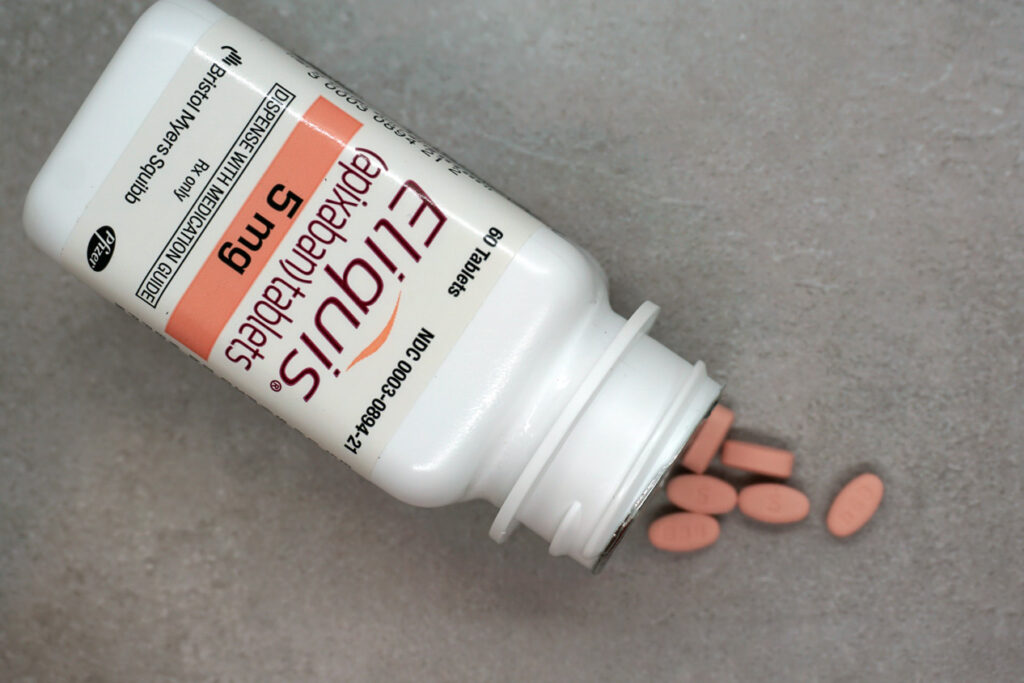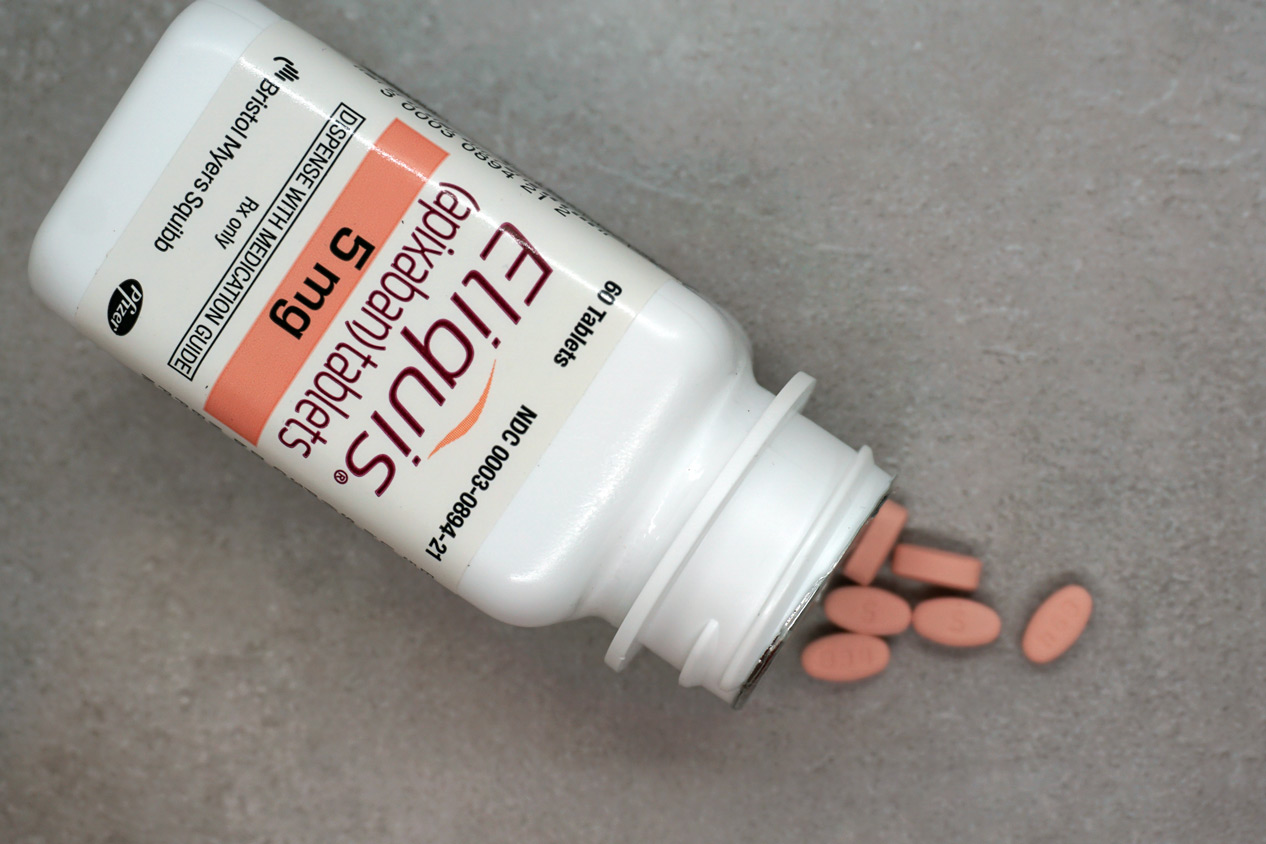
Apixaban shows more efficacy and safety than rivaroxaban in patients with atrial fibrillation and valvular heart disease

Among patients diagnosed with atrial fibrillation (AF) and valvular heart disease (VHD), those treated with apixaban have achieved a lower rate of ischemic stroke or systemic embolism and a lower rate of intracranial or gastrointestinal bleeding than those treated with rivaroxaban.
Researchers from a large retrospective study reported these findings on Oct 18, 2022 in the Annals of Internal Medicine.
“Although apixaban and rivaroxaban are commonly used in patients with atrial fibrillation (AF) and valvular heart disease (VHD), there is limited evidence comparing the 2 drugs in these patients,” the authors said.
“The lack of clinical trial evidence and wide use of both drugs in patients with AF and VHD calls for real-world evidence that can guide treatment selection in clinical practice,” added first author Ghadeer Dawwas, Ph.D, a postdoctoral fellow in Biostatistics, Epidemiology, and Informatics at The University of Pennsylvania in Philadelphia.
The primary efficacy outcome was a composite of ischemic stroke or systemic embolism. The primary safety outcome was a composite of gastrointestinal or intracranial bleeding.
Researchers gathered and evaluated data from a large commercial health insurance database to emulate a target trial of effectiveness and safety of apixaban and rivaroxaban in patients with atrial fibrillation and valvular heart disease.
They compared the use of the two drugs in a propensity score–matched cohort of 19,894 subjects (9947 receiving each drug).
They reported that the incidence rate of ischemic stroke or systemic embolism per 1,000 person-years of follow-up was 5.2 among apixaban subjects and 9.1 among rivaroxaban subjects.
They also reported that the incidence rate of gastrointestinal or intracranial bleeding per 1,000 person-years of follow-up was 14.3 among apixaban subjects and 28.1 among rivaroxaban subjects.
They found no statistically significant difference in all-cause death between the two cohorts.
The authors concluded, “In this study of patients with AF and VHD, patients receiving apixaban had a lower risk for ischemic stroke or systemic embolism and for bleeding when compared with those receiving rivaroxaban.”